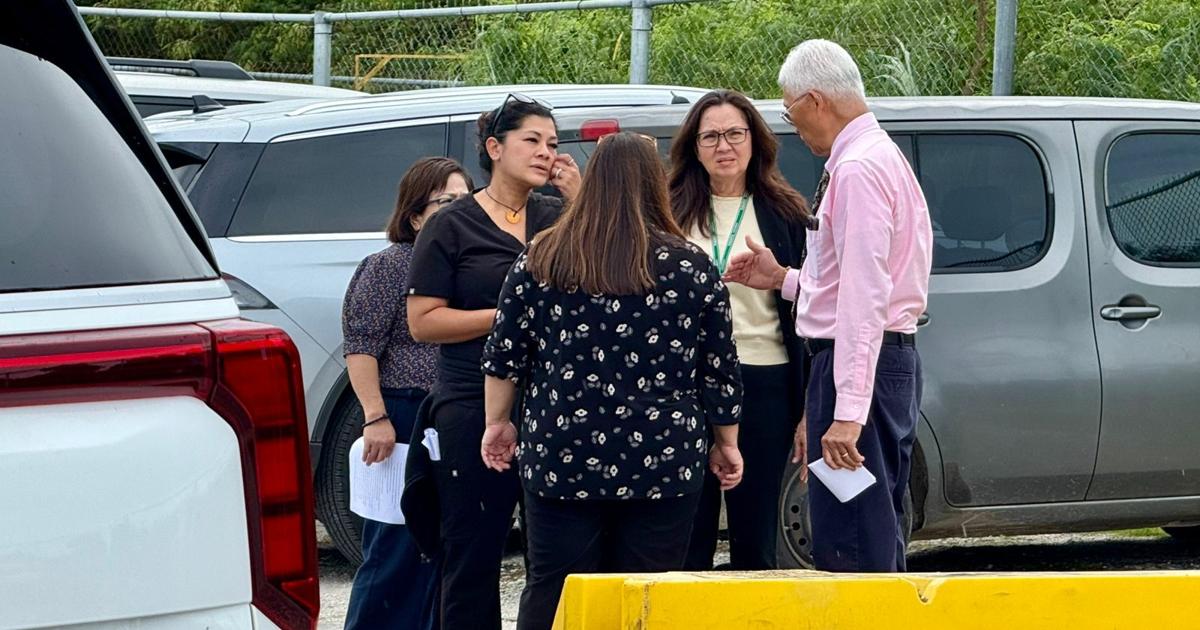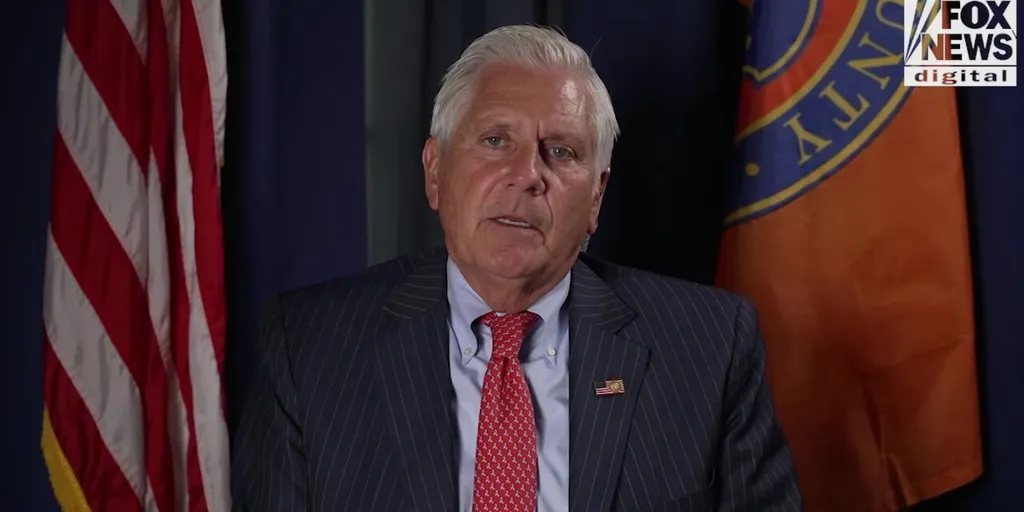Copyright guampdn

Guam Memorial Hospital Authority Interim CEO Dr. Joleen Aguon and members of the GMH board toured the Department of Corrections on Wednesday and discussed inmate health care operations, staffing needs and ongoing collaboration, according to DOC Director Fred Bordallo Jr. Bordallo said Aguon met with DOC officials and medical staff to assess current operations and review a tri-agency memorandum of understanding among DOC, GMHA and Guam Behavioral Health and Wellness Center. “Her purpose was to really talk to the staff here, just assess what their staffing needs are,” Bordallo said. “She’s committed to us to take a look at the tri-agency agreement, MOU, that we have.” He clarified that the discussion did not involve any GMH budget cuts related to the corrections clinic. “We did discuss what assistance Guam Behavioral does in their part of that tri-MOU agreement,” Bordallo said. “At the same time assessing from us what our situation is, budget-wise.” There’s $3.6 million in fiscal year 2026 allocation for medical staffing at correctional facilities. Bordallo said inmate health care remains one of DOC’s largest costs but credited the Office of the Governor for supporting the payments to GMH. The director described the meeting as positive, saying that Aguon’s experience in correctional health settings inspired confidence among DOC staff. “She actually had experience serving in LA County, where she was dealing with inmates, so she knows the health care challenges that inmates have,” Bordallo said. “That kind of experience resonated with a lot of the corrections staff.” Aguon also assured staff that inmate care standards would remain high. “She assured she does not ever want to lower the quality of health care given to the inmates because they’re in the business of saving lives,” Bordallo said. “We’re in the same business, too, as corrections and law enforcement, public safety. We’re all in the business of saving lives.” Others from GMH that joined Aguon during the visit to DOC were Dr. Ricardo Eusebio, GMH chief financial officer Yuka Hechanova and GMH assistant administrators Christine Tuquero and Belle Rada. Overcrowded Currently, DOC houses about 503 pretrial inmates—roughly 300 at the Adult Correctional Facility in Mangilao and 180 to 200 at the Hagåtña Detention Center, which Bordallo acknowledged remains overcrowded. He said approximately 15 medical personnel, including doctors and nurses, work in shifts to cover inmate health care at DOC clinics. “They do it in a way to ensure that they optimize their shift schedule so that it doesn’t cost too much money,” he said. “The longer they’re on duty, the costlier it is.” Discussions also included ways to reduce costs, including the use of Medicaid coverage for eligible inmates. “If you have an inmate that doesn’t have insurance, not even Medicaid, then that cost is going to be coughed up when they’re brought to the hospital,” Bordallo said. Payment delays Regarding the ongoing federal government shutdown, the longest in U.S. history, Bordallo said DOC will continue holding federal inmates despite payment delays from federal agencies. “We’ll always continue to provide the federal government, law enforcement and U.S. Marshals our service holding these individuals for them,” he said. “But with the shutdown, there’s going to be some challenges of compensation.” Although he did not have the current amount owed by federal agencies, Bordallo said DOC remains confident payments will resume once the shutdown ends. “The federal government won’t remain shut down forever,” he said. “They’re going to open, and any debts that they owe us, we’re for sure going to indicate and send them that bill.” DOC also pays to house 12 high-risk local inmates in federal facilities off island, using local funds. “They’re inmates that had been prosecuted and convicted locally that the federal government is holding for us,” Bordallo said. “We have to pay for that, and that’s budgeted.” Bordallo is optimistic that the meeting will strengthen collaborations between DOC, GMH, and Guam Behavioral Health. “Our hope is that she sees the needs of her staff that are here and feels positive about the assistance they provide,” Bordallo said, adding that future prison planning should include modernizing facilities to better support agencies such as GMH and community health programs. “It’s important that the facilities here are adequate and have the environment for medical and behavioral health treatment of inmates,” he added.



